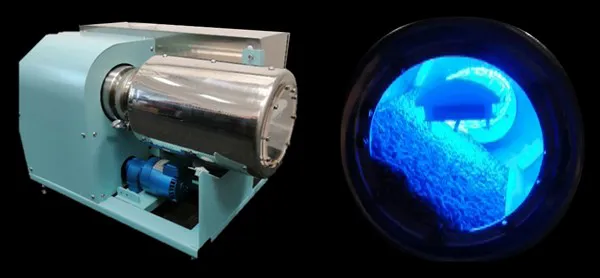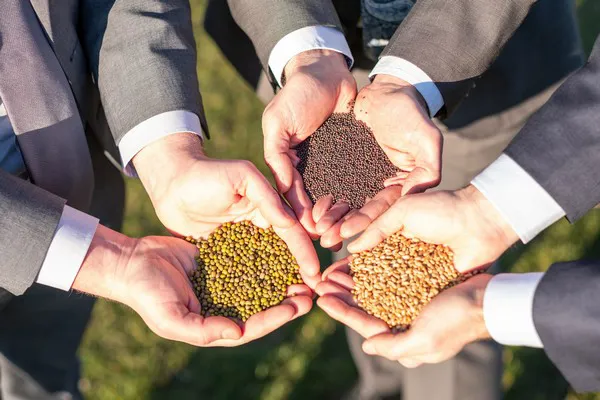First dry-cleaning technology for seeds to launch at Agri-TechE event 19th January 2021
The world’s first ‘activated air’ seed sterilisation system, Aurora Z10, is to be launched by Loughborough University spinout Zayndu Ltd at the Agri-TechE event “Keeping it clean with agri-tech innovation” January 19th 2021. The system provides a dry alternative to chemical treatment or washing. It enables high-value seeds such as tomato or fast-growing seeds like rocket – some to be disinfected for the first time.
Seed cleaning reduces the pathogen load on the seed and protects the soil from contamination with seedborne fungal infection. However, many of the chemicals widely used for disinfection are being withdrawn from use so alternatives are urgently needed.
 Ralph Weir is CEO of Zayndu, he explains that the system gets its name from the Aurora Borealis – the northern lights – a naturally occurring plasma created when an electric current moves through air.
Ralph Weir is CEO of Zayndu, he explains that the system gets its name from the Aurora Borealis – the northern lights – a naturally occurring plasma created when an electric current moves through air.
He says: “The Aurora Z10 is the first in a series of products and is aimed at high value seeds for which there is no treatment at present. The seeds are contained in a sealed rotating drum and we introduce a current, which splits oxygen and nitrogen molecules into individual atoms creating a plasma. This “Activated Air” technically a blend of RONS – Reactive Oxygen and Nitrogen Species – is a powerful disinfectant.
“The RONS are desperate for something to latch on to and tear apart bacteria, fungi or viruses present in the chamber. The seeds are not affected as they are protected by their thick walls, so coming out of the drum are just cleaned seeds and fresh air.”

Ralph explains that the technique overcomes a number of problems faced by seed suppliers.
“The gold standard fungicide seed treatment is Thiram, which prevents damping-off diseases in seedlings. This has recently been withdrawn, so the pathogen load on seeds is increasing, leading to the waste of seed or risk of contaminating the soil. We have done trials of our technology with many crop varieties and it both destroys the pathogens and typically boosts germination – one example being a fourfold increase in early germination of winter wheat, when compared with untreated seed.”
Zayndu’s first product has a capacity of 1kg of seed per batch so the company is concentrating on high value seed such as flowers, fruit and vegetables; tomato seeds can be worth €5 a seed.
However, further products are in production with a larger system, the Z100, due for commercial availability in the summer, with ever-larger systems thereafter. Weir is realistic: “The Z10 is great for high-value seeds processed in small batches, of grams to kilograms – but carrots are processed in tonnes/day throughput. We’re working towards those systems now”.
“Some seeds are untreatable at present, for example fast-growing salads where the time to harvest is too short to allow the chemicals to dissipate or where the seeds, like basil and other herbs are mucilaginous and germinate on contact with water. This is problematic as existing decontamination involves chemicals dissolved in water or a hot dip at 500c. Our treatment is completely dry enabling disinfection of herbs, salads or staple crops such as wheat.”

Ralph will be talking about the new technology at the first Agri-TechE event of the year. Agri-TechE is a membership organisation that brings together technologists with farmers, growers and scientists to create an innovation ecosystem.
Agri-TechE director Dr Belinda Clarke comments: “The agri-food industry is highly regulated and relies on large volumes of water for washing and chemicals for hygiene to meet stringent quality and safety standards. Zayndu’s ‘activated air’ technology is one of a number of emerging approaches that offer sustainable alternatives and other benefits. We look forward to exploring these in the virtual meeting which is also open to non-members.”
For more information:
Zayndu 
Oakwood Drive, Loughborough
LE11 3QF UNITED KINGDOM
www.zayndu.com
